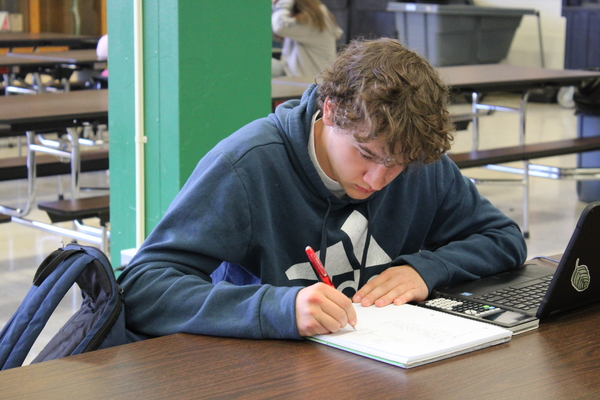How to Hit the Books

A student in the Cafeteria doing school work.
Maybe you’ve studied before tests at the last minute, everyday after school, or not at all. Studying is a big part of education and is something that we’ve been told to do, but what is the best approach to it? We asked some of our teachers their opinions on studying and here’s what they said,
Mr Ahnfeldt – English
● If you write down vocabulary words or definitions while studying them, you’ll have an easier time remembering them
● Study a bit longer if you have an upcoming test
● Study for about 20 minutes if you can
Mr. Drummond – History
● Really study on topics you’re struggling with
● Study a variety of notes from throughout the year
● Review at least 4-5 days a week
● You don’t have to study all in one sitting
Ms. Rowland – Math
● If you’re studying for math try some practice problems
● When doing practice problems try them first, then use resources
Ms. Grant – Science
● If your teacher has posted an answer key use it to check your answers
● Ask questions on topics you don’t understand
Here are some of our student’s answers to our questions
Beaux Taylor – 10th
● I study 1-3 times a week for 10-30 minutes
● I find that when you study you have an easier time on quizzes and tests
● You should study from a minimum of 5min to a max of an hour
● I personally think History, Math, and Science should be studied the most
Lily Robinson – 10th
● I study about 3 or more days a week
● A good minimum time would probably be about 1 hour or less
● People should study the subjects they have the most trouble with. It differs from person to person
● Studying absolutely helps! Sometimes it only does a little, but it does help more than nothing. Just don’t stress yourself out!
Almost everyone interviewed agreed that when you study you are more likely to do well in your academics. Hopefully these tips will help you excel in classes.
